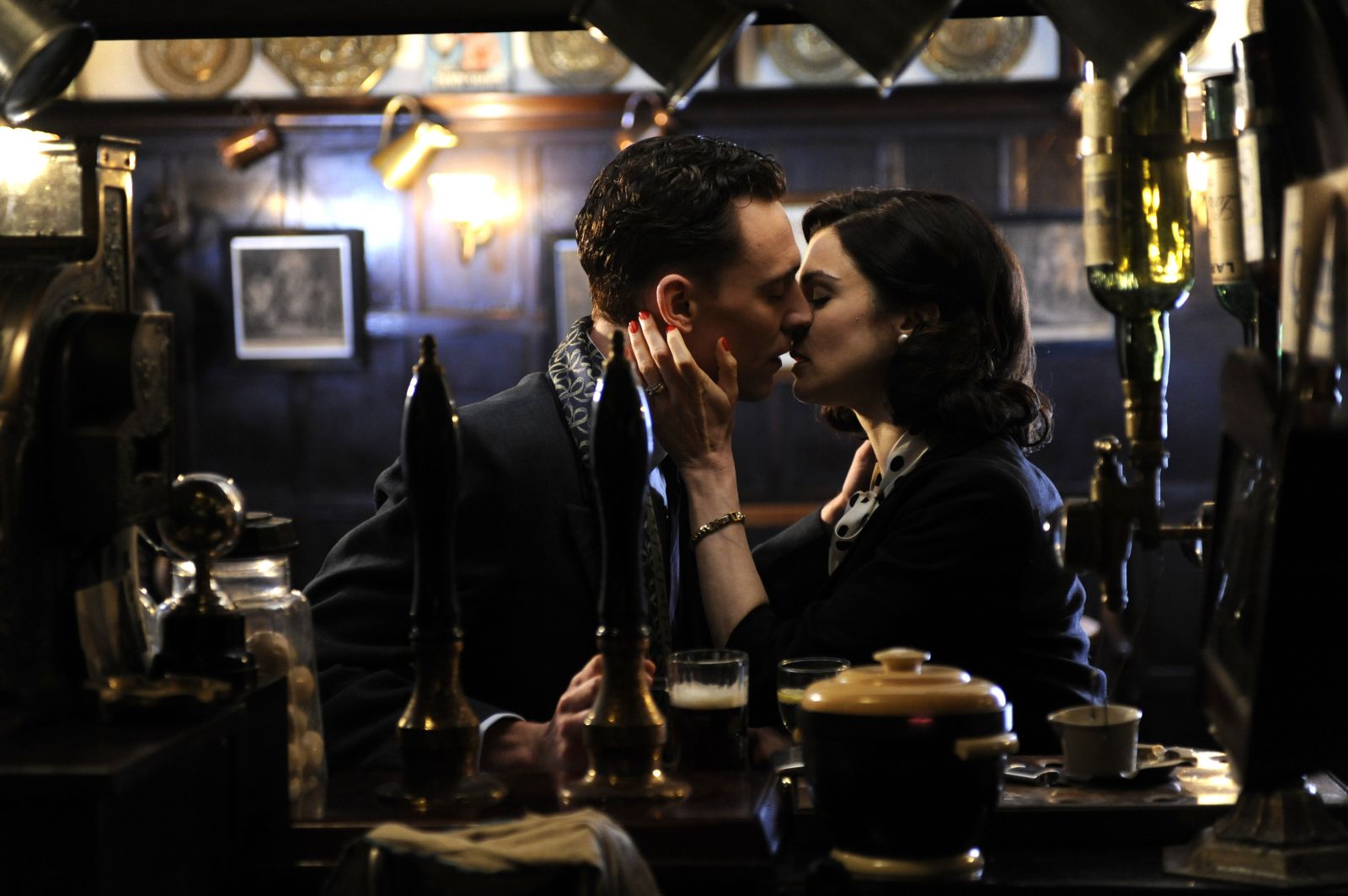Review: The Deep Blue Sea
March 30, 2012 by Danny Baldwin

In 2002, long after the popular conception of the melodrama had shifted from a dignified style for theatrical productions to the domain of only cheap soap operas, Todd Haynes made Far From Heaven – a film that did not simply pay homage to the work of 1950s master Douglas Sirk, but came as close as it possibly could to actually being a Sirk picture (homosexual content aside). That Haynes was able to extract a masterpiece out of the genre’s thought-to-be dated stylizations–the swooping, stringy score; the irrational bursts of emotion punctuating long stretches of blank, repressed stares between the characters; the Technicoloresque glow of autumn as a metaphor for life’s renewal—was a miracle that proved the classical melodrama still deserved a place in modern film canon.
Unfortunately, since Far From Heaven, no theatrical filmmaker has tackled the genre in its original form (Haynes’ HBO miniseries Mildred Pierce and TV’s Mad Men were virtually the only places it was further explored). That is, until now. Terence Davies’ The Deep Blue Sea emerges out of the same tradition, equipped with a British accent – and it’s every bit as rousing as Haynes’ film was. In fact, The Deep Blue Sea may be an even more remarkable accomplishment, in that it is exclusively a character piece, whereas Far From Heaven additionally used the format to forge a commentary on the issues of homosexuality and race (a nod to Sirk’s keen ability to tuck progressive social commentary into material consistent with the Hollywood Production Code).
As is the custom in traditional melodrama, the subject is a 1950s woman in crisis. The viewer meets Hester Collyer (a radiant Rachel Weisz) as she initiates a suicide attempt, turning on the gas in her flat and downing a bottle of pills. “This time, I really do want to die,” she laments in a voice-over of the suicide note she has left for her significant other, former Royal Air Force Pilot Freddie (Tom Hiddleston). What follows—before we learn that the attempt fails—is a mesmerizingly economical sequence where we see the highlights of Hester’s adult life, as if they are flashing before her eyes. Before pursuing an affair with the younger Freddie, she was married to a man much her senior, Sir William Collyer (Simon Russell Beale). Sir William appealed to Hester’s desire for security, where Freddie appealed to her desire for passion (A circling overhead shot of their naked bodies wrapped together in bed is as sensuous and primal as cinema gets).
Writer/director Davies, adapting from a famous Terence Rattigan play, maintains the flashback structure throughout, as a distraught Hester remembers pieces of each deteriorated relationship while she goes about the rest of the day, post-suicide attempt. For as well told as the film is, its true power rests in Weisz’s lead performance, which (like Julianne Moore’s in Far From Heaven) commits to the internalized acting style of classical melodrama without sacrificing an ounce of grit or emotion. It’s never abundantly clear why Hester is in such dire straits—in fact, had the character been in a modern film, she’d be on meds for bipolar disorder—but Weisz viscerally captures her insatiable, perhaps impossible need for both protection and passion. This is, of course, accentuated by the male-dominated social hierarchy of the postwar West.
Speaking of the setting, Davies’ vivid characterizations of this time and place are special. The film is bookended by shots of a bombed-out home down the road from Hester and Freddie’s flat, reminding the viewer that while the war may be over, great damage remains on the home-front – a metaphor that may be overt, but works within the hyper-dramatized conventions of melodrama. Even more haunting is a flashback of Hester and Sir William taking shelter from the fire bombings in a subway tunnel where, along with dozens of others, they sing the chorus of “Molly Malone”. Needless to say, the period production design by James Marifield is spot-on, as is Florian Hoffmeister’s cinematography, which unlike most Sirkian productions is dreary and darkness-flooded, but somehow captures the same distinct glow.
For Davies, whose nonfiction Of Time and the City was praised by most but criticized as an old man’s “back in my day!”-yammering by a select few, the breadth of this achievement must feel like a sort of vindication – an affirmation that a method of filmmaking that piqued decades ago is still relevant. Everything about The Deep Blue Sea’s unique style—from the acting, well conducted not only by Wesiz but the entire cast, to the temperamental Samuel Barber violin concerto pouring over most scenes—is just right for the material. While one effects-laden picture after another crowds the megaplex, it is this old-fashioned “small movie” that stands the first masterpiece of the year.
![]()
* * *
The Deep Blue Sea (2012, UK). Produced by Katherine Butler, Eliza Mellor, Sean O’Connor, Kate Ogborn, and Lisa Marie Russo. Directed and written for the screen by Terence Davies, based on the novel by Terence Rattigan. Starring Rachel Weisz, Tom Hiddelston, Simon Russell Beale, Harry Hadden-Paton, and Ann Mitchell. Distributed by Music Box Films. Rated R, with a running time of 98 minutes.
